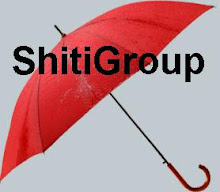If reports are true that it is still interested, Citi Infrastructure Investors wants a second shot at the auction for BAA Ltd.'s Gatwick Airport, after its group's offer was rejected May 13. But it's a long shot: Citi needs to beat the next two highest bidders to win the deal and regain credibility in the market, say observers.
Word on the Street is that Citi's Midway Airport debacle had singed the infrastructure fund's reputation as it tries to score its first major concession since being launched in 2007 with a reported $4 billion target. It has landed two, but neither of them came to fruition. The fund, along with Abertis Infraestructuras SA and another backer, was named the preferred bidder on a $12.8 billion concession for the Pennsylvania Turnpike, but the state legislature nixed it. Then in April, a Citi-led consortium failed to complete a $2.5 billion agreement to privatize Chicago's Midway Airport.
Its failure to complete the Midway deal was an unfortunate combination of bad timing and miscalculation on Citi's part, industry folks say. Contrary to reports, it was as much a function of the equity markets' collapse as the credit markets' tightening that killed it.
Citi was hoping to cover the $2.5 billion price with about $1 billion equity contributions from the consortium -- Citi was to put up 89.25%, while John Hancock Life Insurance Co. put in 7.82%. Citi's joint venture, YVR Airport Services Ltd., an affiliate of the Vancouver Airport Authority, was to ante up 2.93%. Another $700 million to $800 million was to be financed with debt, including a bridge from Citibank, a source says.
The remaining $700 million or so was to be raised from existing investors in Citi's infrastructure fund that indicated interest in co-investing. One large Dutch pension fund, an Australian pension fund and the Alaska State Pension Investment Board were each contributing 13.54% in indirect investments, according to disclosure statements.
While Citi evidently had about $1.7 billion in equity and debt, the co-investments fell short, a source said. The deal was approved in September, but by the time Citi went to its LPs the markets had fallen about 35%. This meant that with the fallen equity values' denominator effect on the LPs' portfolios, the institutions were either tapped out or they had to shrink allocations.
The LPs also balked at the $2.5 billion price, which was widely believed to be substantially higher than the second-best offer, the source said. Citi attempted to fill the gap via a convertible instrument, but the terms weren't attractive enough in the current markets.
Citi & Co. ended up writing off a $126 million deposit with Chicago, which investors had to fund.
In the Gatwick auction, BAA evidently wanted a much higher price than the £1.18 billion ($1.89 billion) offered by Citi's group. According to a Reuters report citing sources, BAA also had concerns over the "deliverability" of Citi's proposal, though the group claimed its bid was fully funded.
Observers now wonder whether Citi's fund may have had some "brand damage" because of Midway. As one infrastructure investor puts it, "That's a bit of a public slap in the face." - Vyvyan Tenorio
Click on title above for full article;
Saturday, May 23, 2009
Subscribe to:
Post Comments (Atom)












No comments:
Post a Comment